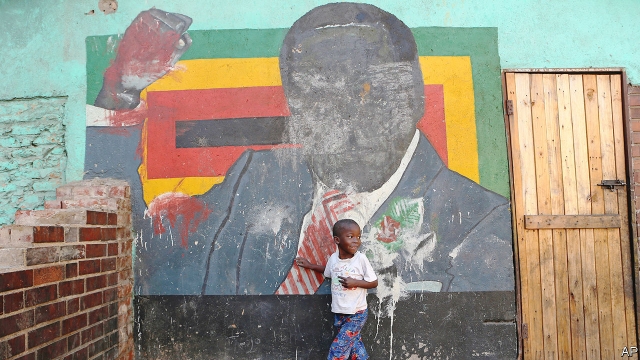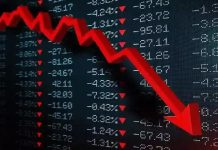fter decades of mismanagement and corruption, Zimbabwe is a wreck. Its people are poor and hungry (see article). By early next year about half of them will need help to get enough food, says the un’s World Food Programme. In a country that was once among Africa’s most industrialised, electricity flickers for only a few hours a day, often at night. Factories and bakeries stand idle while the sun shines. Workers arrive after dark, hoping that if they are patient they will be able to switch on their machines or ovens. In homes people wake up in the middle of the night to cook or iron their shirts. Freshwater taps work for a few hours once a week. Tendai Biti, an opposition mp and former finance minister, complains that life has gone back to colonial times: “I’m washing in a bucket, my friend, as if it is Southern Rhodesia in 1923.”
The crisis is Zimbabwe’s worst since the bad days of 2008-09, when President Robert Mugabe’s money-printing sparked hyperinflation so intense that prices doubled several times a week. That crisis was tamed only when Zimbabwe ditched its own currency and started using American dollars. This time, the government blames drought for the nation’s woes. Rains have, indeed, been poor. But the real problem is bad government. The same ruling party, zanu-pf, has been in charge since 1980. Mr Mugabe’s successor, Emmerson Mnangagwa, who seized power from his mentor in 2017, is equally thuggish. His regime has kept grabbing dollars from people’s bank accounts and replacing them with electronic funny money, which has now lost most of its value. In June, without enough hard cash to pay the soldiers who defend it, the government decreed that shops must accept only funny money. Annual inflation has reached 500%.






